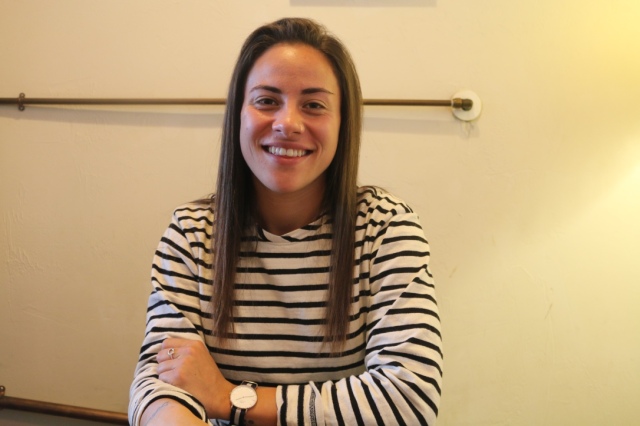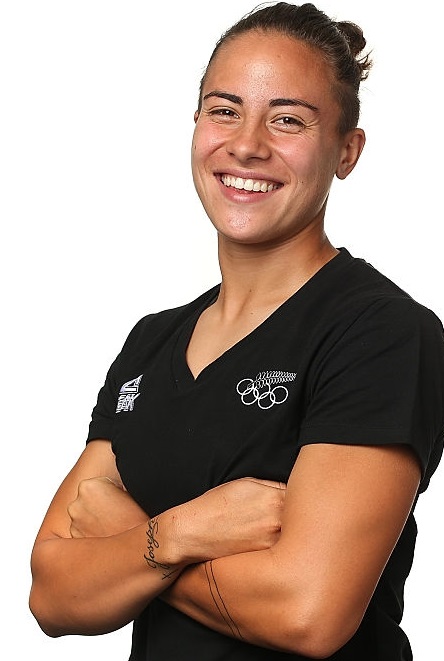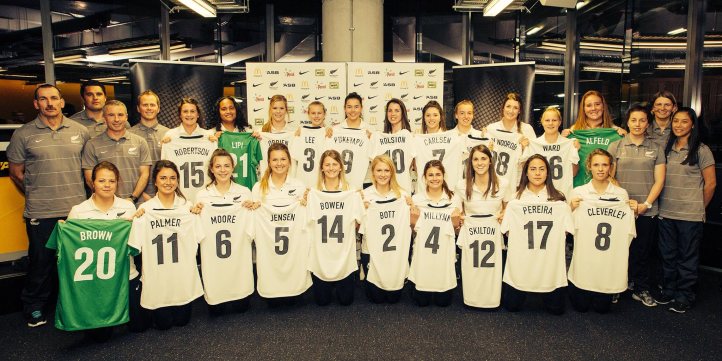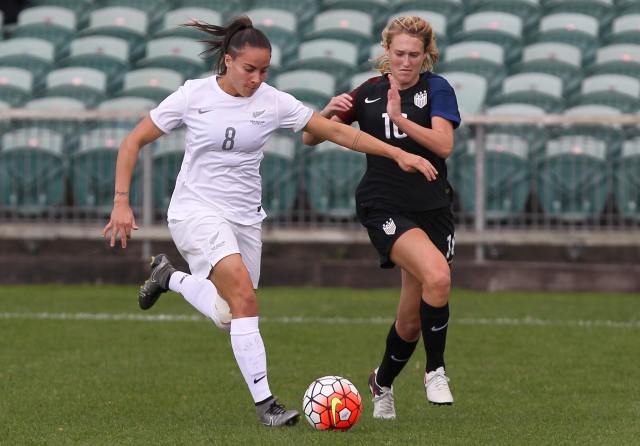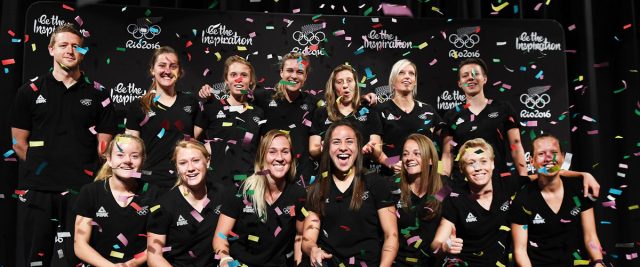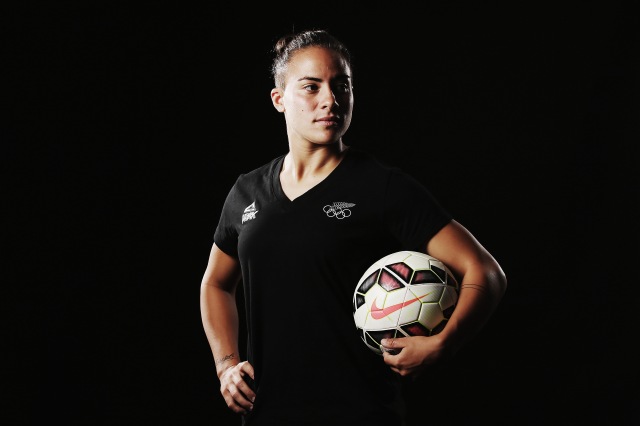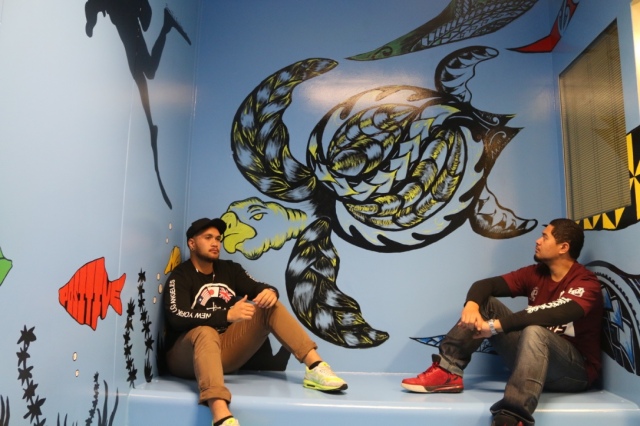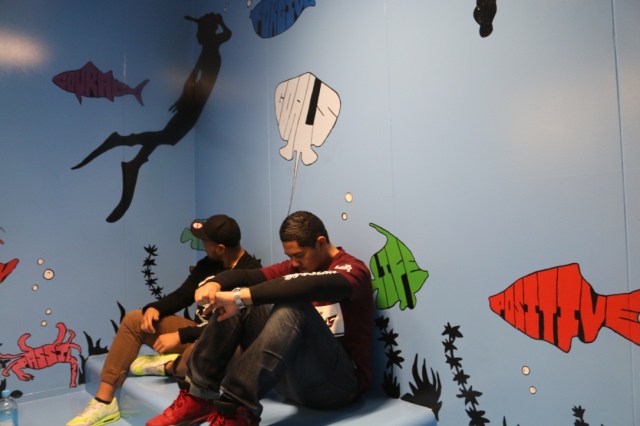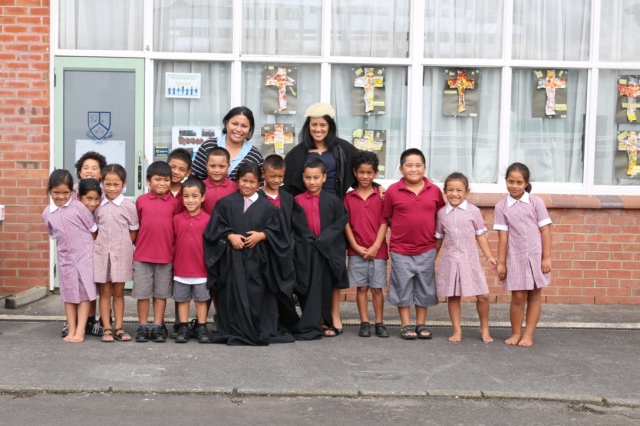Girl bosses who brunch is a series which seeks to celebrate the achievements of incredible Pacific women. All of my chats with the various girl bosses take place in a café and we discuss anything and everything ranging from their journey to success to how many people they pashed on the weekend (jokes, kind of). It is my hope that in sharing stories about successful women, this will inspire others to do better and be better.
Meet the beautiful, intelligent and straight-talkin’-badass Ida. Ida grew up in Samoa, she moved to New Zealand once she had completed high school to attend the University of Auckland. After completing a degree in Bachelor of Engineering (Honours) at the University of Auckland, she immediately snapped up an amazing job, working on one of New Zealand’s most iconic rail projects. From here, she was head hunted and offered to work on New South Wales’ largest highway project. After spending 4 years in Australia, Ida moved to London and is now readily making a name for herself as a freelance Civil Engineer. Oh and in addition to being a genius, she’s also an incredible athlete. She played professional netball for Samoa and competed in the World Cup. What a gal!
Thank you Ida for taking the time out of your super busy schedule to sip your fancy ass tea from England, for our virtual brunch date and sharing your story with TSW. xx

Talofa Mrs Taefu – I still need to get used to calling you that! Thank you for taking the time to share your story with TSW. So what’s the goss? What have you been up to? I hear you’re in London now?! Fill me in.
Heeeellllloooo! Thanks for having me! Yes I’ve been in London for 7 months now on a 2 year working visa. I’m working as a Freelance Civil Engineer contracted to one of Europe’s top tier Civil Engineering Contractor’s Vinci Construction UK Ltd. I work on the Crossrail West Station Project, a 300 million GBP railway project. We are currently upgrading 13 railway stations on London’s western railway link as part of London’s greater Crossrail Project.
I am the Projects Commercial Design Coordinator. Our project is a Design and Build Project and my team’s role is to provide commercial support the Engineering Design Management team. Essentially we are responsible for ensuring our design stays within our original scope and where our scope changes, we ensure we get paid for what we do! We are the key link between the Engineering and Commercial team. It is a new role within the company and is being received very well so it has been very exciting but also hard work!
You are crazy talented. That is amazing, congratulations on all your success! How did you end up in London?
It has always been a dream of mine to travel around the world. I lived in Samoa until I was 18 and when I graduated from uni my husband and I started looking for overseas opportunities straight away. After a year of working on one of Auckland’s most iconic rail projects I was offered an opportunity to move to Australia to work on the largest highway job in NSW at the time. I planned to stay in Australia for 2 years but I ended up spending 4 amazing years living in some of the most beautiful places in Australia and working on some exciting projects. I got married recently and while looking into Europe as a honeymoon destination my husband and I decided we were ready for a new adventure. So in the midst of planning our wedding we planned a move to the UK. 2015 was hectic to say the least but we are here! And we made it!



It’s a pretty well known fact that you are a very ambitious and hardworking lady, so it’s not surprising that you have achieved so much. Is your work ethic and confidence something that was encouraged from a really young age or were these qualities that you developed as you grew older, with more experience?
All of the life skills and qualities I have acquired through life are due to lessons learned from some key people in my life. These people are my husband, parents, siblings and extended families. Family really is everything!
My ambitious qualities are definitely thanks to my parents. My parents had extremely high expectations! I was expected to get a university scholarship, be head girl, be a straight A student, captain of the netball team, soccer team, track and field team etc. My older sister actually achieved all these things so I grew up thinking it was perfectly normal to be the best at absolutely everything. No pressure at all (laughs). On reflection it really was a blessing. My parents obviously saw something in me that I didn’t see! Their belief and support really gave me the confidence and discipline that I needed to achieve anything I wanted. I also have a super supportive family. My siblings, husband and extended family are extremely supportive of anything that I want to pursue and they are always there to celebrate the successes and support and encourage me when things don’t work out. They are pretty amazing!
One of the most important lessons my parents taught me was if you want something go get it! No one is going to get you the things you want and things don’t just happen. You have to plan, work hard and keep going. I have an extremely hardworking family. My parents, grandparents, aunties, uncles, siblings and cousins are extremely hard working people and their work ethic is something that I admire. We don’t just work, we strive to be the best at what we do and we enjoy doing it! It is amazing the things you can do and the places you can go when you put in the hard work.
I absolutely believe in the value of surrounding yourself with a strong and positive support network, such as your family. And your family is pretty damn cool! I have to ask though, why did you decide to study Engineering? Maths and logic are totally not my thing, so please, enlighten me.
It was actually a coincidence that I ended up studying Civil Engineering. When I was in high school I knew nothing about Engineering. My best friend’s dad was a Structural Engineer and I remember asking him one day what Engineers did. I can’t quite recall the conversation but I remember him telling me briefly what Structural Engineers do, that there was a shortage of Engineers in Samoa and that there were very few females in Engineering. When I got my university scholarship to study in NZ I actually wanted to do Computer Science. I had dreams of becoming the next Bill Gates or Mark Zuckerberg (laughs). When I was applying for my scholarship I had to choose a second option. At the time I thought it would be a good second option in case I wasn’t accepted into Computer Science (laughs). When I got accepted into Engineering my parents received my acceptance letter and at the time offered to pay for me to visit my sister in Wellington if I pursued Engineering. Of course being the opportunist that I am I took the deal (laughs). As always my parents knew better and it was probably the best deal I ever took because not only do I love Engineering but it is where I met my now husband which is a super bonus!



That is actually such a good deal. And I’m really glad you mentioned meeting your husband through Engineering, because I totally knew that meeting hot dudes was one of the perks of studying Engineering. If I didn’t almost fail NCEA Level 1 Maths, I fully would’ve applied to study Engineering. Fellas aside, what do you enjoy most about being an Engineer?
Wow there are so many things I enjoy about Engineering! Having worked mainly in construction I really working with a team to manage and successfully deliver the construction of amazing projects. I also enjoy the thrill and challenge of building things better than others! Building it in the safest, most efficient and economical way possible and solving problems along the way. I like having the freedom of planning the construction of a project, planning it well and watching the execution of my plans. The best thing about Engineering is that you are always learning. There is always a new technology or a new way of doing things. And there are plenty of challenges to keep you busy. There is never a dull day in the office.
Also there are so many different opportunities for Civil Engineers. You can work as a Consultant as a designer, Contractor constructing the works or you can work for a client as a Project Manager. The variety of projects available are endless! And there are opportunities around the world.
That is so true. I guess that’s the beauty of Engineering, it can take you around the world because maths is a universal language – a universal language that I, clearly, still struggle to understand. However, I have to say, one of the most obvious things I’ve noticed about the Engineering industry is the lack of females. As a working lady, what are some of the difficulties you have faced in such a male dominated industry?
Engineering is definitely a male dominated industry. However this is definitely changing! I have been extremely lucky to have worked for companies that celebrate and encourage diversity. Almost all the companies that I have worked for have had a large focus in not only recruiting females but also providing great support networks within the company for woman in Engineering. The biggest difficulty in working in a male dominated industry is not working with more females. Not having as many female role models, female support and just good old female company! In all the companies I have worked for I have never met any female Directors, Project Managers and Construction Managers. I have met very few females in higher corporate management Engineering roles and definitely no Pacific Islanders. This definitely needs to change!
I completely agree and I think that the movement towards having strong female representation in the industry is progressing readily because of women like you! So keep up the great work! You’ve travelled so much for your job you extremely lucky girl, what are some of the benefits of working overseas?
There are so many!
Career Exposure – Having worked with some of the best construction companies around the globe I have not only had exposure to how different companies operate, but I have learned from some of the best people in the industry. This has really helped with my personal development.
Travel & Culture – We live on such a beautiful planet! And there are so many exotic, idyllic and breathtaking destinations that you can enjoy when you work overseas. I love experiencing different cultures and people and I especially love experiencing foreign cuisine.
Personal Growth -Nothing makes you more independent than relocating to a new country where you don’t know anyone. Setting up a new life, making new friends and trying to make something for yourself is definitely scary! It definitely makes you responsible and you grow up real quick! I have moved 9 times in the last 6 years so I’ve definitely learned to adapt quickly and live outside my comfort zone.


Great tips! You’ve achieved so much and you’re making waves in your career, who inspires you to strive for the best?
So many people inspire me! It’s so important to have many role models! I have inspirations for everything! Career, lifestyle, fitness, fashion, family, investing, business, travel… the list is endless! My current inspiration list comprises of Michelle Obama, Beyonce, Robert Kyosaki, Oprah Winfrey, Richard Branson, and my late grandfather Vaai Kolone.
My life inspirations are definitely my parents and my husband.
My parents are my life coaches. I call them a lot! For everything! I ask them for career advice, marriage advice, cooking advice, travel advice…absolutely everything. My mother has an amazing outlook on life which I really admire. She is a go getter! Full of passion, faith and confidence! She is currently doing her MBA and manages a team of 30 as a High Court Civil Manager in Auckland. She is the true definition of a Girl Bawse! My father is a realist and has a very practical view on life that I admire. He has also taught me to not take s*&$ from anyone! He really prepared me for when I left home and continues to give me great advice.
My husband inspires me daily. He is an amazing man! He has really taught me to appreciate and enjoy the life that we live. We have so much fun! He is also a Civil Engineer and extremely good at what he does so he also has a great work ethic and shares my passions and dreams. He is definitely my rock and I wouldn’t do life with anyone else! I am one lucky lady!


Aw, that is too sweet! What adventure are you planning next?
We are enjoying married life and experiencing London life. I want to retire early so our current focus is to work hard, invest and hopefully explore some business ventures. Work life balance is also a high priority! I have been away from home for almost 6 years so I want to spend more time with my family, travel more and start a family of my own. We are currently planning to move back to Auckland next year. However there are other countries I want to work in so who knows Dubai and the US are potential options we are looking into as well!
Any advice for young people who want to follow in your footsteps?
Ohhh yes! My top 5 tips that I live by are:
Invest in yourself! Take the time to plan your life and goals. We spend most of our time working for others and planning for others. If you invested that time in planning for yourself imagine how much further you would be in life!
Set your goals high! I am an avid goal setter. I set goals, research how I am going to do it and set myself targets so I stay accountable! My current goals are to have a million dollar property portfolio, be financially free, travel the world, to have abs and to start a business. The sky is the limit!
Take every opportunity you can get! There are so many out there! Don’t wait for them you need to really take the time to look for them!
Get help! I have had many mentors and coaches along the way to help me achieve my goals. Get help and surround yourself with people who will help you get there.
Plan, plan, plan and plan. I have plan A’s, B’s and C’s for most important things. I am a meticulous planner and I plan for when plans don’t work out because not all of them do!
Good luck and thanks for having me!
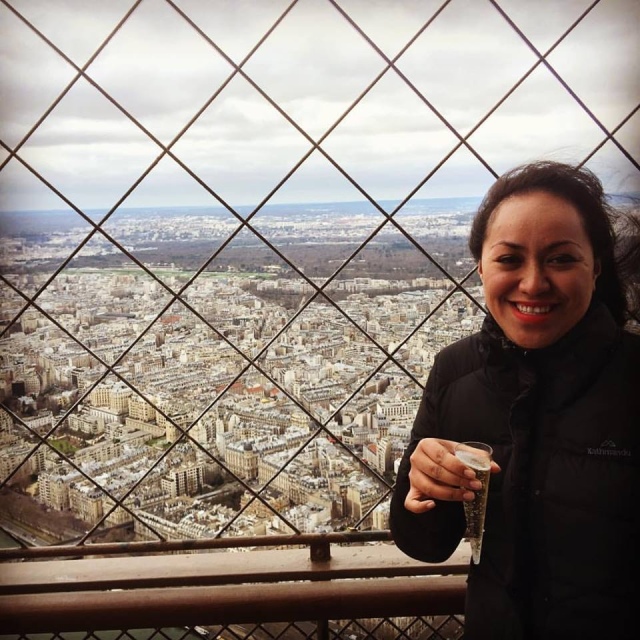
Thank you so much for sharing your story Ida! So proud to know you and wishing you all the best for your future ventures. Malo lava! xx TSW
